
7 tips on how to fall asleep fast | Dodow
Check out these 7 tips to sleep well, whether you want to better your eating habits or do breathing exercises or meditation.
Lire la suiteInspired by yoga, hypnotherapy and meditation, developing Dodow immersed us into a deep study of alternative methods for fixing health problems; sleeping was just a first step.
We would like to share with you our studies, and help you discover health and well-being advice, that are easy to put into practice.
How to fall asleep? It's best to be in a great position, at home in your comfy bed. Don't bother turning and turning around in your bed looking for that sweet spot: we're going to tell you how to position yourself so that you're well being is at its best. First, know that there is no "ultimate" position that will allow you to sleep much better than any other. Every position has its strengths and weaknesses.
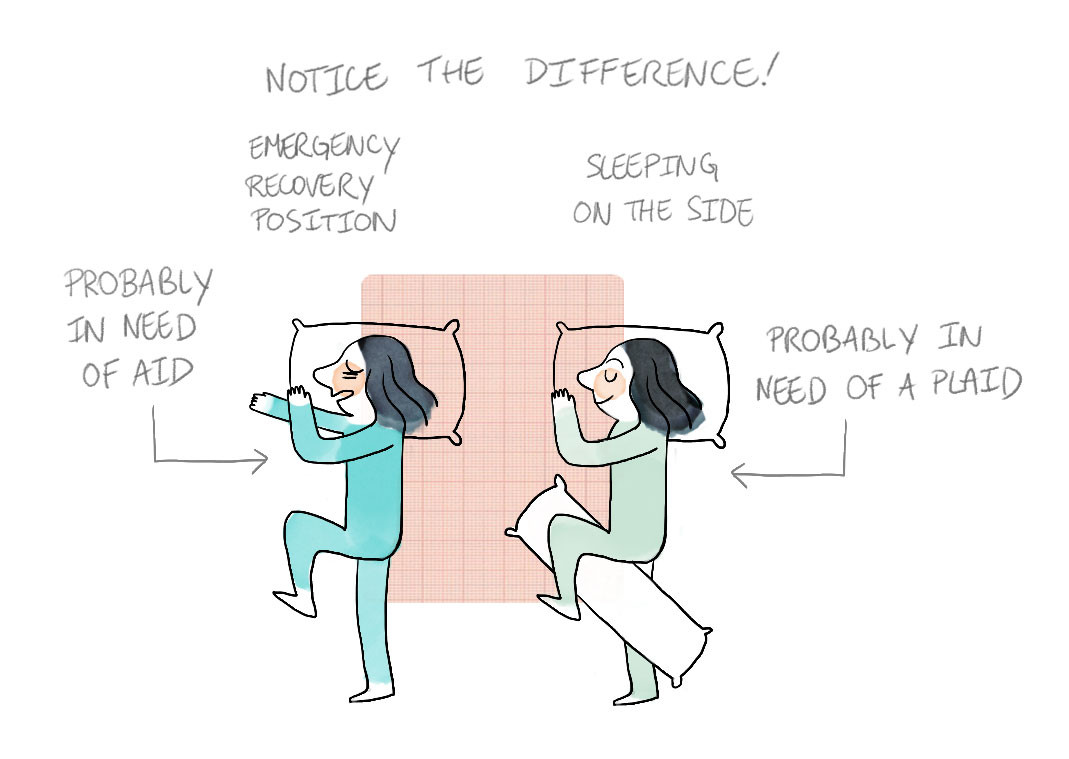
On your belly, your spine arches inwards because it's not in its natural position. Your muscles and articulations carry the majority of your weight, and you're forced to turn your head on the pillow in order to breathe. It can hurt your neck and cause you to rotate vertebrae, or even to have headaches and jaw pains. If you sleep too often on your stomach, you can even develop a bruxism (teeth grinding while you're asleep)... to top it off, the pressure on your thoracic cage prevents you from breathing.
Osteopaths and physiotherapists agree to say that in general it's the worst position because it can cause cervical and lumbar pain. If you sleep on your belly anyway, prefer a flat pillow to prevent putting pressure on your neck and your shoulders, with a firm mattress. Don't forget to turn over often!
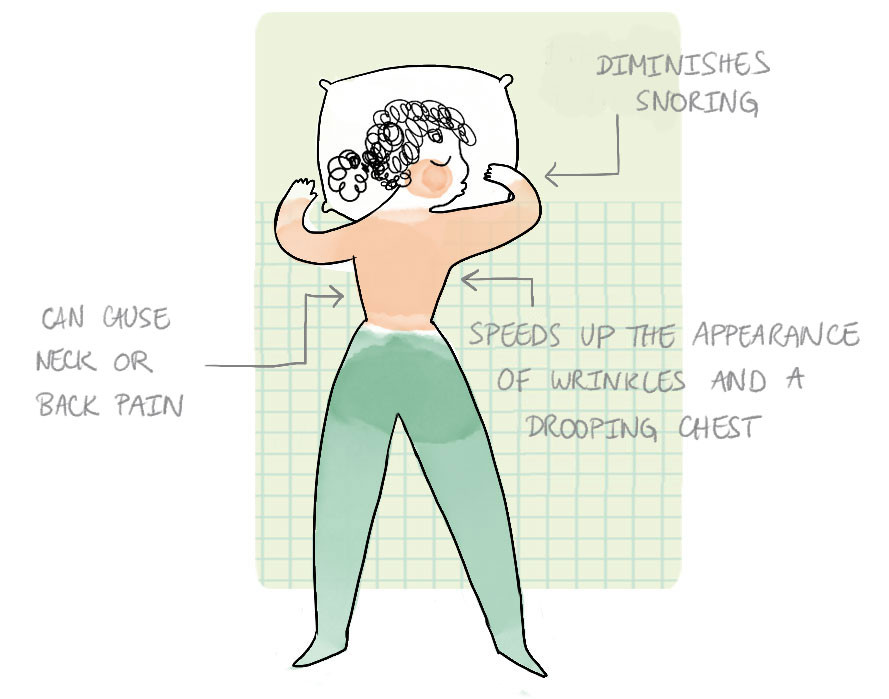
Huddled under your sheets, you look more like a hibernating pajama ball than a human being. But are you comfortable?
First of all, you stop your thoracic cage from inflating and you don't breathe as well. Your spine and your neck are curved, your knees are bent for hours, and all of that could cause arthritis or numbness.
If you're sleeping in this position, think of putting a pillow between your legs and folding one leg while extending the other to relieve the pressure that you're putting on your articulations and your pelvis. For your head, pick a thick pillow that will support your spine and occupy the empty space between your shoulder and your neck.
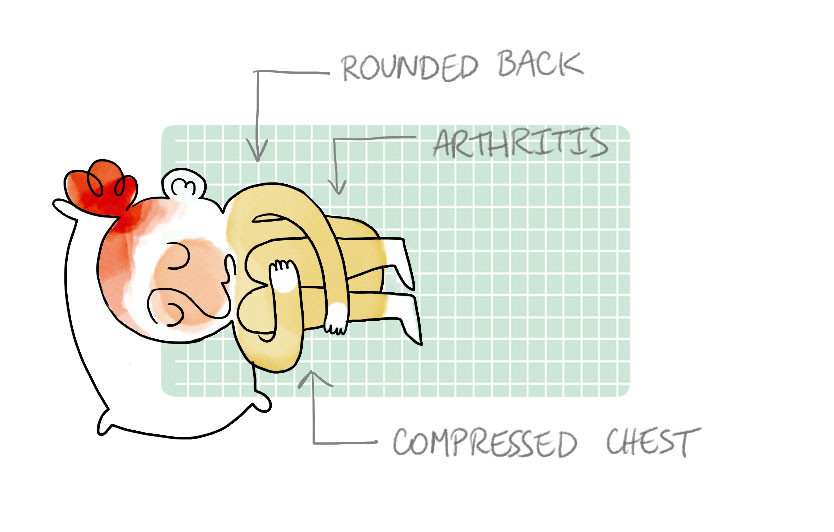
In this position, you avoid gastric re-flux, reduce snoring, and improve your blood flow. However, now that you know you can sleep sideways, a very important question obviously springs to mind: which side?
The truth is, since you have to alternate positions during the night (which happens automatically, if everything is working right) you should also alternate between both sides to distribute pressure on your entire body. According to the university of San Francisco California, men who sleep on the same side suffer more often from kidney stones. 75% of individuals participating in the study had kidney stones exclusively on the side which they were sleeping on.
Avoid sleeping with your arms higher than your shoulders (for example, by putting them under your pillow). It constricts your nerves and your veins. Your arms can be numb, and the weight is heavy on your shoulders, which makes getting up harder.
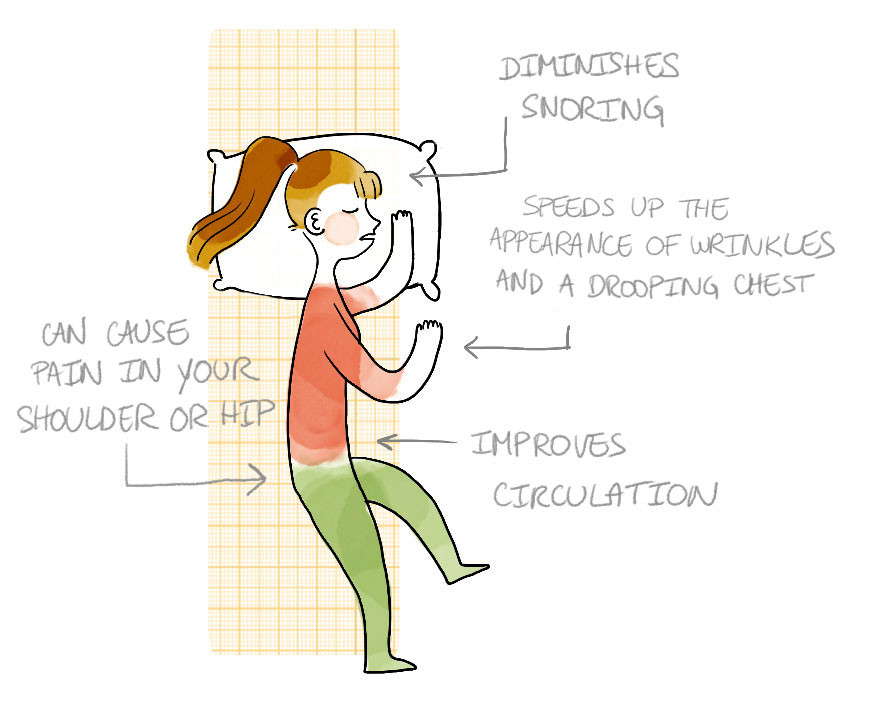
Finally, sleeping on your back is technically the best way to sleep. It's not recommended if you have a tendency to snore or have sleep apnea problems, however it doesn't put pressure on your skin by crushing it into the pillow or pulling it towards the bottom, reduces neck pain and back pain by following the shape of your spine, and reduces acid re-flux.
Ground rule: try and sleep like a little Lego character. It really is better !
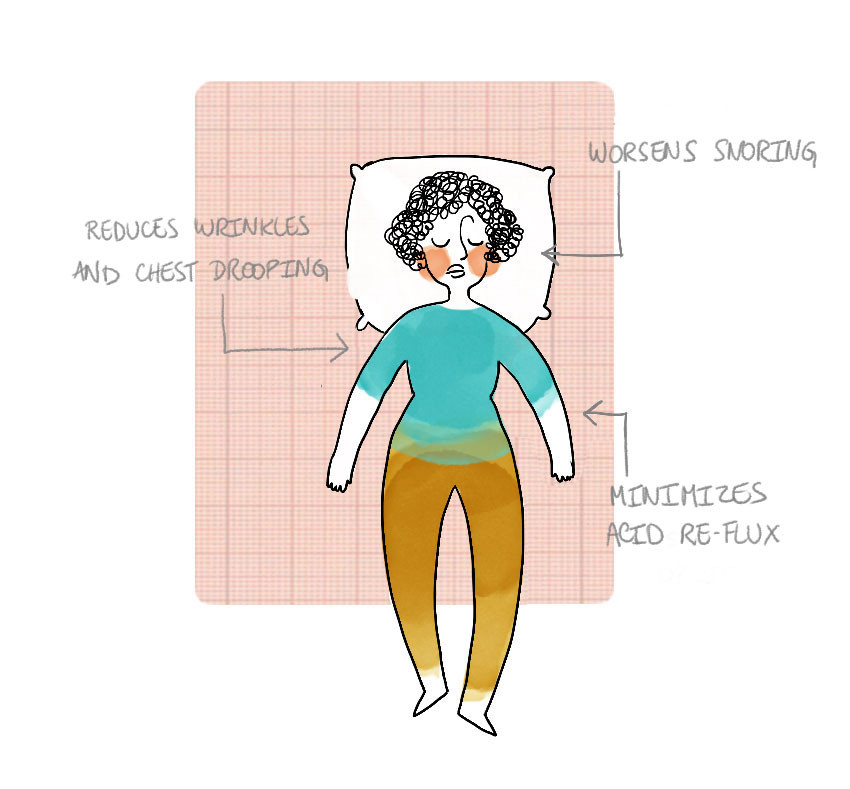
Women's magazines and TV shows will show you spooning couples giving each other delicate and languid embraces, each actor or model coiling themselves into the nape of their lovers' necks, and nobody's arm ever hurts.
But the numbers don't lie and you haven't fallen for it. In France in particular, the country of romance, studies show that for over half of french couples the best way to sleep is back to back. According to a poll by BVA Healthcare, seniors in particular swear by this position, with 59% of aficionados (after a life spent together, apparently people like their space). Young couples (less than 34 year olds) for a bit less than half prefer sleeping in the arms of one another, face to face.
Ain't no mystery here: the best positions to sleep together are the same as sleeping alone- except you're in good company!
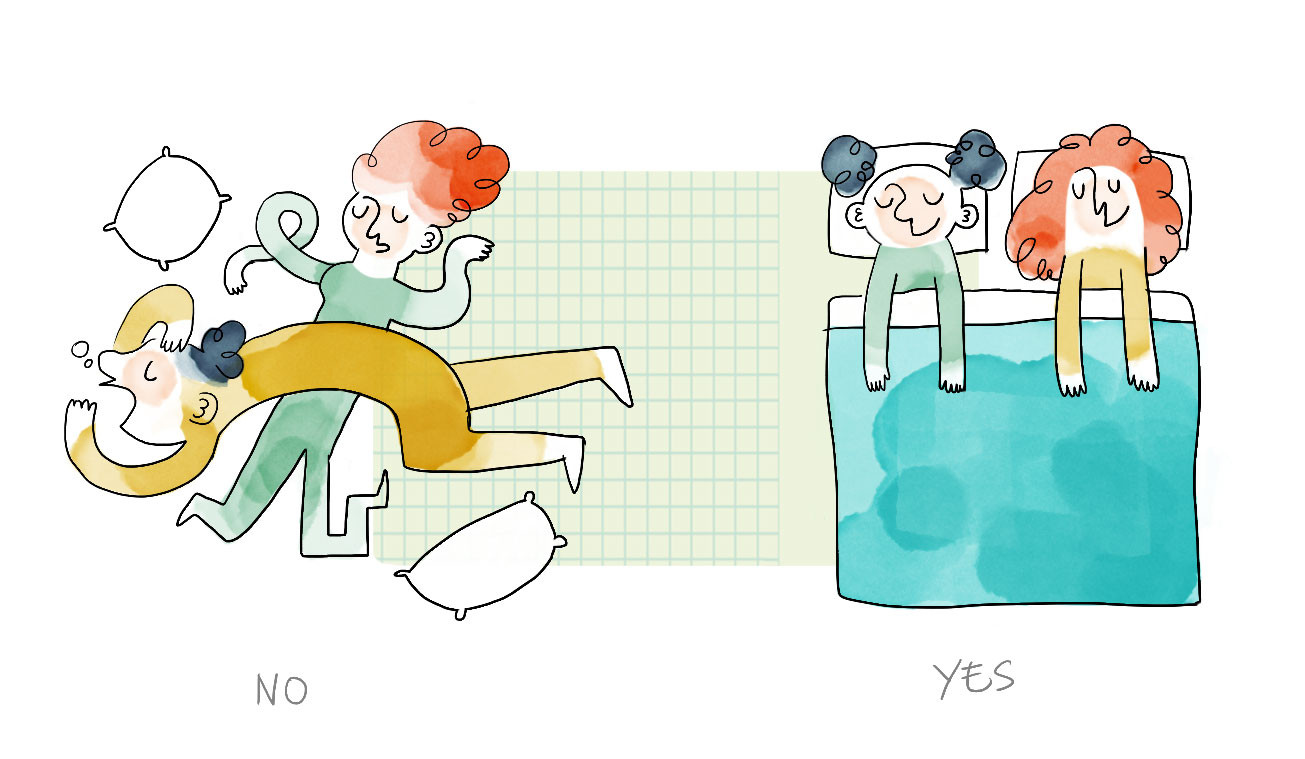
That said, positions to sleep don't have a very important effect on your body. If you have a preexisting condition or are pregnant, there are precautions to be taken- but you have few chances of suffering from the plethora of ills described on this page simultaneously.
Simply know to alternate positions regularly and have bedding that fits your morphology!
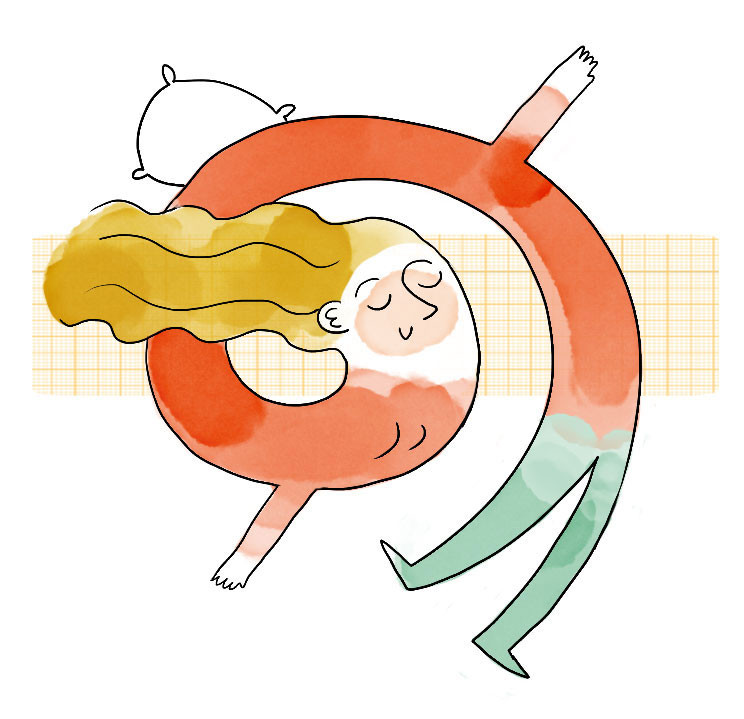
On the same topic :
Are you sleep deprived ? Find out how it works and how it affects you!
Discover the inner workings of children's sleep cycles
Learn to meditate with these simple exercises in a few minutes!